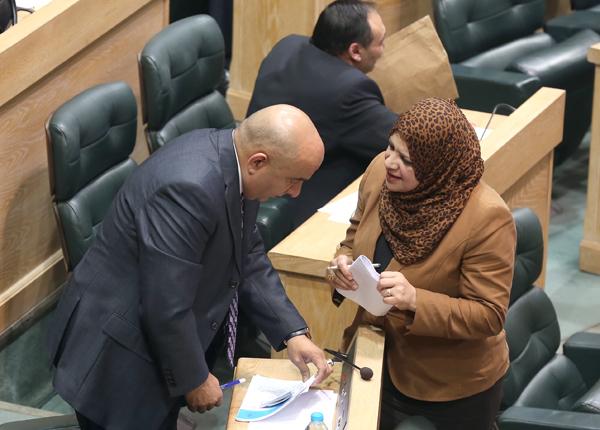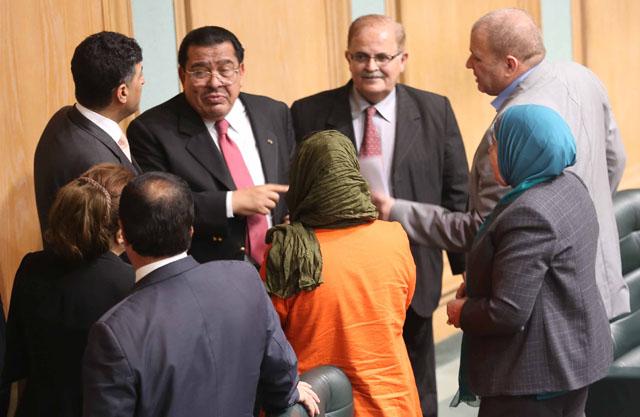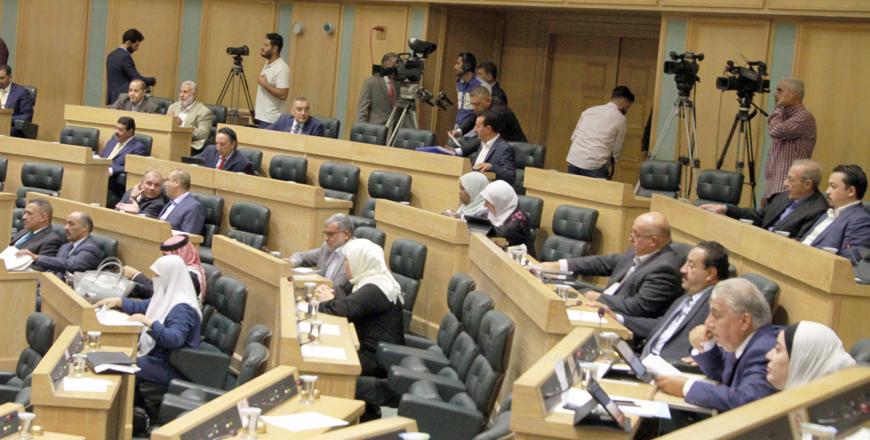AMMAN — Several MPs on Wednesday called for boycotting any joint sessions with the Senate before the Constitutional Court issues its interpretation of articles 89 and 92 of the Constitution that govern joint sessions.
During its session, the Lower House endorsed a memorandum submitted by 13 deputies seeking the Constitutional Court’s view on these two provisions.
In the memo, MPs inquire about the possibility of accepting a third option when endorsing a piece of legislation, instead of being confined to the Senate or the Lower House version.
The issue had come up recently when the two Houses met in a joint session to resolve their dispute over the draft social security law, with the Lower House insisting on linking early retirement pensions with the inflation rate, a move rejected by senators.
In their joint session in December, several deputies called for taking a third option that was put forward by the legal committees of both Houses, but the absolute majority at the meeting voted in favour of the Upper House’s version instead.
In the memo presented on Wednesday, the 13 deputies also sought the Constitutional Court’s opinion on identifying the required majority in joint sessions to endorse bills.
Article 89 of the Constitution stipulates, in its third paragraph, that “a joint meeting of the Senate and the Chamber of Deputies shall not be considered properly constituted unless an absolute majority of the members of each House is present.
“Resolutions at such a meeting shall be taken by a majority of the senators and deputies present, exclusive of the speaker who, in case of equality of votes, shall have a casting vote.”
Article 92 of the Constitution reads: “Should either House twice reject any draft law and the other accept it… both the Senate and the Chamber shall hold a joint meeting under the chairmanship of the speaker of the Senate to discuss the matters in dispute.
“Acceptance of the draft law shall be conditional upon the passing of a resolution by a two-thirds majority of the members of both Houses present.”
Meanwhile, MPs agreed to hold a general discussion session over the decline of Jordan’s ranking on Transparency International’s Corruption Perceptions Index from 58th to 66th place out of 198 countries.



















